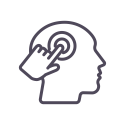Navigating the Holiday Season with Mindful Alcohol Consumption
The holiday season is known for its festive spirit, but it also sees a significant increase in alcohol consumption, particularly between Thanksgiving and New Year’s Day. Special occasions like Thanksgiving Day, Christmas Eve, and New Year’s Eve often lead to the most extreme drinking behaviors. A report by Alcohol Monitoring Systems found that over 450,000 monitored DUI offenders increased their drinking by 33% during this period, even though they were being tracked around the clock. This makes it an important time to promote awareness and responsible drinking practices.
Alcohol is often a central part of holiday celebrations, and statistics show an increase in alcohol-related incidents during this time. Holiday drinking patterns show clear trends, with more than half of Americans (55%) admitting to drinking more than usual during the season. New Year’s Eve is particularly notable, with 54% of Americans ranking it as their favorite drinking holiday. However, this indulgence often leads to regret with over half of Americans wish they had drunk less, and 28% experience occasional remorse. In addition, risky behaviors like drinking and driving are prevalent, with 1 in 5 Americans admitting to drinking and driving during the holidays, and men being 85% more likely to engage in this behavior. Generational differences also emerge, with 80% of Gen Z enjoying party games during the holidays, compared to just 23% of baby boomers. These insights, gathered from a survey of 1,000 American adults across 50 states by Insurance Canopy, highlight the complex nature of holiday drinking—where festive joy often collides with risks and regrets.
The holidays can be a stressful time for many people due to the increased focus on holiday parties, preparations, and financial pressures. According to the APA, nearly nine in 10 U.S. adults (89%) report that concerns such as financial strain, missing loved ones, and anticipating family conflict contribute to their holiday stress.
While almost half (49%) describe their stress as “moderate,” around 41% experience higher stress levels compared to other times of the year.
Additionally, 43% say holiday stress interferes with their ability to enjoy the season, and 36% feel that the holidays have become a competition. During the holidays, stress can often lead to increased alcohol use as a way to cope, but this can negatively impact mental health and well-being.
Stress surveys show that women often experience heightened stress during the holidays. A recent survey by the American Psychological Association (APA) found that women are more likely than men to report higher stress levels during the holiday season and are less likely to take time to relax or manage that stress in healthy ways. As these pressures build, alcohol often becomes a central element of gatherings and celebrations. However, the combination of stress and alcohol can create a cycle that worsens the problem. Practicing mindful alcohol consumption offers a healthier way to navigate the challenges of the season without compromising well-being.
Mindful alcohol consumption involves being fully aware of what you’re drinking, why you’re drinking, and how it affects your physical and emotional well-being. This practice includes understanding your motivations for drinking, setting personal boundaries, and staying present with your experiences. Given that holiday stress increases by 44% for women and 31% for men, approaching alcohol consumption with intention is especially important. Practicing mindfulness can help individuals manage stress, stay grounded, and find healthier ways to cope with overwhelming emotions.
A randomized study compared the effects of 11 minutes of mindfulness instruction versus relaxation on alcohol cravings, physiological responses, and consumption among at-risk drinkers. While relaxation more effectively reduced cravings and increased parasympathetic activity, only mindfulness led to a significant decrease in alcohol consumption at a 7-day follow-up. These findings highlight that even brief mindfulness practices can effectively reduce alcohol use in hazardous drinkers, offering a simple yet impactful tool for healthier drinking habits.
Understanding Mindful Consumption
Mindful consumption is the practice of being fully aware of what you’re consuming, why you’re consuming it, and how it impacts your physical and emotional health. When applied to alcohol, it means:
Recognizing your motivations for drinking.
Setting personal boundaries around how much and how often you drink.
Being present with your experiences and feelings during and after consuming alcohol.
By practicing mindful alcohol consumption, you can reduce the risk of unhealthy behaviors that contribute to some of the country’s biggest health issues, such as obesity, heart disease, and diabetes. Beyond physical health, mindful drinking improves mental clarity, strengthens relationships, and aligns your actions with your values. During the holiday season, prioritizing your well-being and managing stress in healthier ways is not just beneficial but necessary. Whether you choose to drink or not, staying intentional about your choices is the best gift you can give yourself.
Tips for Mindful Drinking During the Holidays

Know Your Limits: Before attending any holiday event, set a clear intention for how much alcohol you’ll consume. A good rule of thumb is to pace yourself by having no more than one standard drink per hour and alternating alcoholic beverages with water or other non-alcoholic options.

Plan Ahead: Consider the events you’ll be attending and decide in advance whether you’ll drink and, if so, how much. For example, you might choose to skip drinking at a family dinner if you know you’ll have champagne at a New Year’s party later in the week.

Understand Your Triggers: The holidays can be an emotional time. Stress, family dynamics, or feelings of loneliness can sometimes prompt overindulgence. Recognize these triggers and have alternative coping mechanisms ready, like taking a walk, practicing deep breathing, or confiding in a friend.

Savor Your Drinks: If you decide to drink, slow down and truly enjoy the experience. Notice the flavors, the aroma, and how the drink makes you feel. This not only helps you stay present but also makes it easier to recognize when you’ve had enough.

Have an Exit Strategy: If you feel pressured to drink more than you’re comfortable with, having a plan to leave the situation can help. Driving yourself or having a trusted friend ready to support your decision not to drink can make all the difference

Opt for Non-Alcoholic Alternatives: Mocktails, sparkling water, and other festive non-alcoholic options can keep you included in the celebration without consuming alcohol. Many hosts are happy to accommodate when asked in advance.
The Benefits of Mindful Drinking
Practicing mindful alcohol consumption offers numerous benefits:
Better Mental Clarity: Excessive alcohol can cloud judgment and heighten emotions. Being mindful allows you to stay present and engaged.
Improved Physical Health: Drinking in moderation reduces the risk of hangovers, dehydration, and other negative health effects.
Enhanced Relationships: By staying present, you can connect more meaningfully with those around you.
Aligned Values: Mindful drinking helps you stay true to your personal goals and values, ensuring that your actions align with your intentions.
A Final Thought
The holidays are a time for joy and connection, not regret. By practicing mindful alcohol consumption, you can navigate the season with greater ease and balance. Whether you choose to drink or not, prioritizing your well-being and staying true to your intentions is the best gift you can give yourself.
References
American Psychological Association. (2023). Even a joyous holiday season can cause stress for most Americans. Retrieved from https://www.apa.org/news/press/releases/2023/11/holiday-season-stress
Editorial Staff. (2022). Holiday binge drinking. American Addiction Centers. Retrieved from https://alcohol.org/statistics-information/holiday-binge-drinking/
Insurance Canopy. (n.d.). Holiday drinking statistics. Retrieved from https://www.insurancecanopy.com/holiday-drinking-statistics
Kamboj, S. K., Irez, D., Serfaty, S., Thomas, E., Das, R. K., & Freeman, T. P. (2017). Ultra-brief mindfulness training reduces alcohol consumption in at-risk drinkers: A randomized double-blind active-controlled experiment. International Journal of Neuropsychopharmacology, 20(11), 936–947. https://doi.org/10.1093/ijnp/pyx064
National Institute on Alcohol Abuse and Alcoholism. (2023). Alcohol’s effects on health: Research-based information on drinking and its impact. Retrieved from https://www.niaaa.nih.gov/publications/brochures-and-fact-sheets/truth-about-holiday-spirits
OpenAI. (2024). ChatGPT (Version 4) [AI language model]. Assisted in generating ideas and editing content for flow for a blog post on alcohol use during the holidays. Retrieved December 16, 2024, from https://chat.openai.com
Blog Post Tags:
Related Blog Posts
Related Learning Labs
Related Resources
.
- Buscar Tratamiento de Calidad para Trastornos de uso de Sustancia (Finding Quality Treatment for Substance Use Disorders Spanish Version)
- Finding Quality Treatment for Substance Use Disorders
- Focus On Prevention: Strategies and Programs to Prevent Substance Use
- Monthly Variation in Substance Use Initiation Among Full-Time College Students
- The National Survey on Drug Use and Health (NSDUH) Report: Monthly Variation in Substance Use Initiation Among Adolescents








